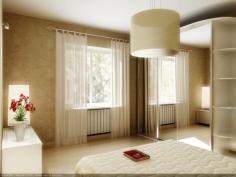Choosing the best interior designer for your home involves careful consideration of their expertise, style, and compatibility with your project. Here's a step-by-step guide to help you find the right interior designer:
Assess Your Needs and Goals:
Determine the scope of your project, whether it's a full home makeover, a single room, or specific design tasks. Clarify your goals, preferences, and budget to give the designer a clear understanding of what you're looking for.
Research and Gather Recommendations:
Seek recommendations from friends, family, or colleagues who have worked with interior designers. Online platforms, design magazines, and social media are also great sources for discovering designers.
Review Portfolios:
Look through the designers' portfolios to see their previous work. Pay attention to their design style, use of colors, materials, and overall aesthetics. Make sure their past projects align with your vision.
Check Credentials:
Verify the designer's qualifications and credentials. Professional organizations like the American Society of Interior Designers (ASID) and the International Interior Design Association (IIDA) provide certifications and memberships to qualified designers.
Interview Multiple Designers:
Reach out to a few designers for initial consultations. Discuss your project, preferences, and any challenges you foresee. This is an opportunity to gauge their communication skills, enthusiasm, and understanding of your requirements.
Ask About Process and Approach:
Inquire about the designer's design process, including how they gather information, create concepts, and execute projects. Understand how involved you will be throughout the process.
Discuss Budget and Fees:
Be transparent about your budget and expectations. A good designer should work within your budget and provide a clear breakdown of their fees, whether it's a flat fee, hourly rate, or a percentage of the project cost.
Visit Completed Projects:
If possible, visit homes or spaces the designer has worked on to see their work firsthand. This can help you assess the quality of their designs and attention to detail.
Check References and Reviews:
Ask the designer for references from previous clients. Contact these references to gather insights into the designer's professionalism, communication skills, and ability to meet deadlines.
Evaluate Compatibility:
Choose a designer you feel comfortable with and can communicate openly. Interior design projects involve collaboration, so it's essential to have a positive working relationship.
Consider Expertise:
Depending on your project's requirements, consider the designer's expertise. Some designers specialize in residential spaces, while others may excel in commercial or specific design styles.
Review Contracts Thoroughly:
Once you've selected a designer, review and sign a detailed contract. The contract should outline the scope of work, project timeline, payment structure, and any other relevant terms.
Trust Your Instincts:
Ultimately, trust your instincts when making a decision. Choose a designer who not only has the skills but also resonates with your vision and objectives.
Open to Collaboration:
While your designer should bring their expertise, they should also be open to incorporating your ideas and preferences into the design. A successful collaboration often results in the best outcomes.
Remember that the best interior designer for your home is someone who can turn your vision into reality, understands your lifestyle, and brings creativity and professionalism to the project.


